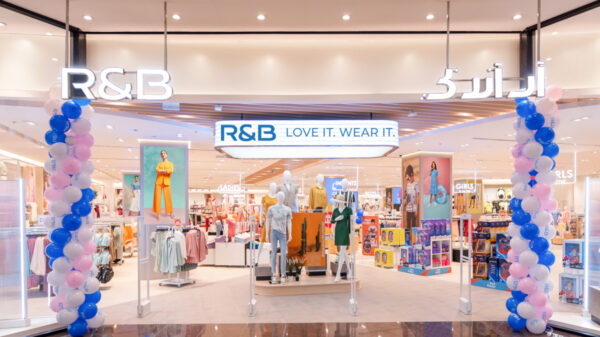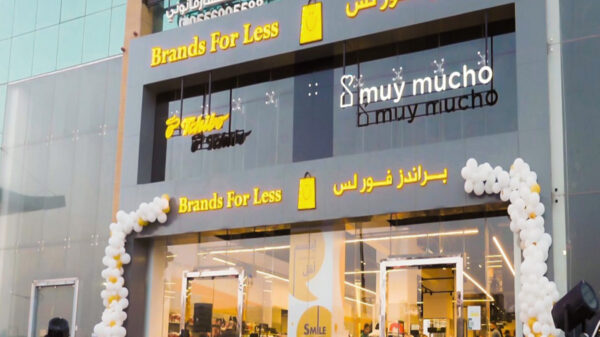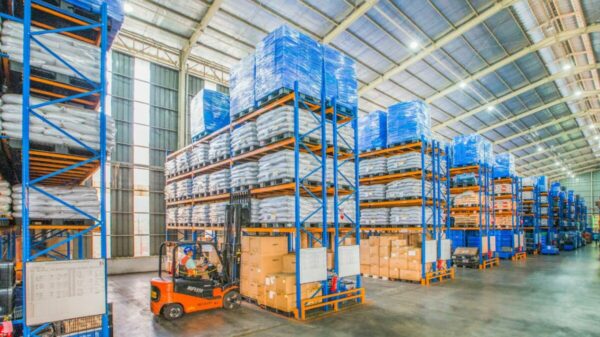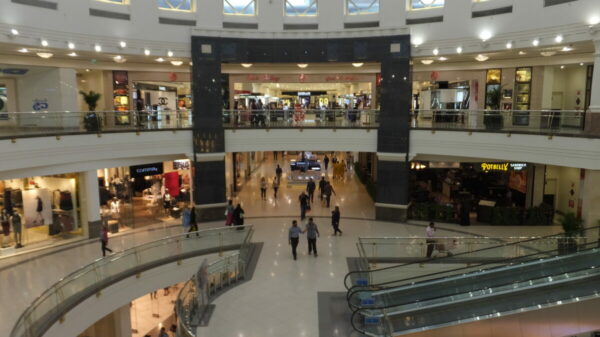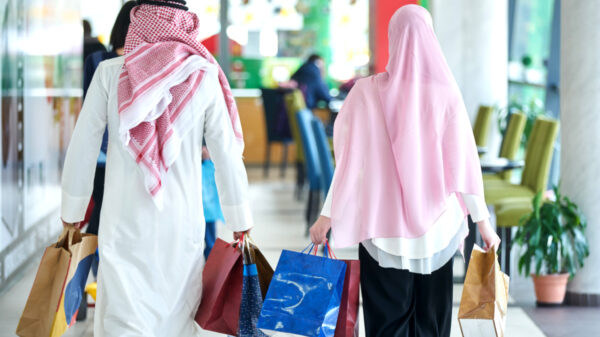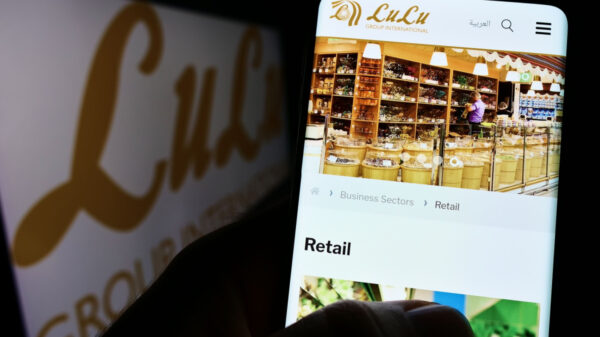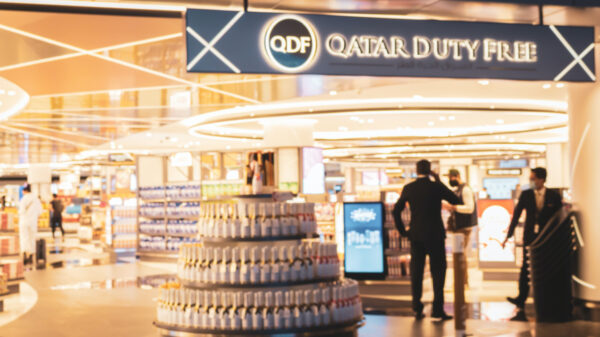In the fast-paced world of retail, staying ahead of the competition means providing customers with a memorable and convenient shopping experience.
As such, retailers in the region are taking to virtual reality to retain customers and engage with them in creative ways.
Last month, a beauty brand in Dubai’s Mall of the Emirates took this to the next level with the launch of its VR-enabled stall. Open from January 21 to 29, it allowed customers to preview and test products without the need for physical application.
Shoppers could use cameras to create an avatar projected onto a screen, which would also show them a range of available products. They could then choose a product and apply it virtually.
Nerissa Low is the founder of Liht Organics, the beauty brand behind this VR-enabled stall.
Speaking to ME Retail News, Ms Low said: “the podium at Mall of the Emirates was a good chance to showcase the brand’s products, as well as to give an insight into the brand’s progressive direction towards the future of beauty with the first beauty VR experience here in the Middle East”.
She explained that shoppers worldwide, especially in the Middle East, have been looking for more engaging ways to connect with brands.
Ms Low added that while her company is planning major expansion into the Middle East, she will be curating product launches that are specifically created for the Middle East market, where technology is playing a major role in everyday life.
“The Metaverse is the future, with consumers now looking for more immersive and experiential storytelling platforms that teleports them from their current reality.”
In fact, a 2021 report by YouGov cited the UAE as a major market for augmented reality, and said that UAE residents were willing to adopt it for retail shopping as well.
The report noted that large proportions — 53 per cent — in the UAE are likely to shop for clothes using virtual reality tools.
In fact, 42 per cent of respondents said they bought clothes online, while only 30 per cent shopped for clothes at a physical store.
Similarly, 46 per cent of those surveyed said they would use VR to purchase technology and home appliances.
In fact, by 2021, Chalhoub Group had already installed such technologies at brands such as Dolce & Gabbana, Tryano and Max Mara.
This tech can create more personalised experiences for the customers, from finding to fitting clothes.
They were also using AI to recommend products customers might like, and become smarter in how they purchase and price their products.
The group had also said that artificial intelligence and augmented reality are revolutionising the way people shop for clothing, making it easier and more convenient to find and try on pieces they love.
With these technologies, shoppers can preview and visualise how an item will look on them, without the need for a traditional changing room experience.
The Neiman Marcus Group is a luxury retailer, operating stores such as Bergdorf Goodman.
To enhance the shopping experience for its customers, the company has developed and implemented the memory mirror technology across its stores.
The memory mirror allows customers to easily record and review their fashion try-ons, perform side-by-side comparisons, and share the results with friends and family through text, email and social media.
In addition, Neiman Marcus has also deployed versions of the memory mirror specifically for trying on sunglasses and for virtual makeovers.
Mohammad Baker, CEO of global retailer GMG, told Arabian Business this year that experts view the integration of augmented reality and virtual reality as a transformative development in the realm of online shopping.
He said that these technologies empower customers to experience virtual try-ons of fashion items, accessories and makeup, all from the comfort of their own homes.
This eliminates the need for physical visits to stores and offers a new level of convenience and flexibility in the shopping process. As a result, the use of AR/VR in e-commerce is poised to revolutionise the way people shop for fashion and beauty products.
Frank Fitzgerald is the founder of Metameet, the technology company behind the VR-enabled stall in Mall of the Emirates.
He told ME Retail News that the Metaverse is expected to transform the online shopping experience in the Middle East.
“Brick and mortar turned towards online retail in the last decade or so. Now, the metaverse is reengaging retailers with customers and eventually will replace the online retail experience. [This is expected to happen] from point of sale purchasing, to actually meeting your customers in a virtual world!” he said.
UAE based VR startup Designhubz creates augmented reality experiences for retailers across the globe, and includes local clients like Chalhoub Group.
In a statement to ME Retail News, the company said that, “retailers and brands are eagerly adopting augmented reality and virtual try-on solutions to provide customers with a virtual try-before-you-buy immersive shopping experience.”
“These technologies help increase online buyer confidence by empowering shoppers to accurately gauge size & fit, color, texture, and even style before making their purchase.”
“Not only do these newfound abilities satisfy consumers’ growing expectations but they’ve also proven to increase e-commerce conversions by more than 58 per cent, on average.”
Meanwhile, international Metaverse companies with a focus on retail are looking to foray into the Middle East market as well.
Altava, a Singapore-based metaverse group, told ME Retail News that “The UAE is at the forefront of global innovation, with VR/AR no exception. Especially since the announcement of The Dubai Metaverse Strategy, a concept very closely linked to VR/AR, there is a strong push to welcome businesses that help foster innovation in the region”.
“Given the AR and VR industry in the UAE totalled overall revenue of 81.61 million U.S. dollars in 2021, and is estimated to increase to 175.34 million U.S. dollars by 2027, the retail sector could certainly continue to benefit from this growth.”
Altava has previously collaborated with brands such as Fendi, LVMH, Balmain, Prada, and Burberry.
LandVault is another metaverse company that had launched a virtual fashion week in March 2022, called the “Decentraland Fashion Week”.
The company is expecting to expand to the UAE this month.
Speaking to ME Retail News, LandVault CEO Sam Huber said the metaverse boom in the UAE will spark growth for adjacent technologies like VR.
“While not necessary to use virtual reality to access the metaverse, it is the most immersive way to consume it.”
“Specifically, for use cases like luxury shopping, try-ons, digital tourism or real estate, VR offers unparalleled customer experience which has been proven to increase engagement and conversion,” Mr Huber said.

